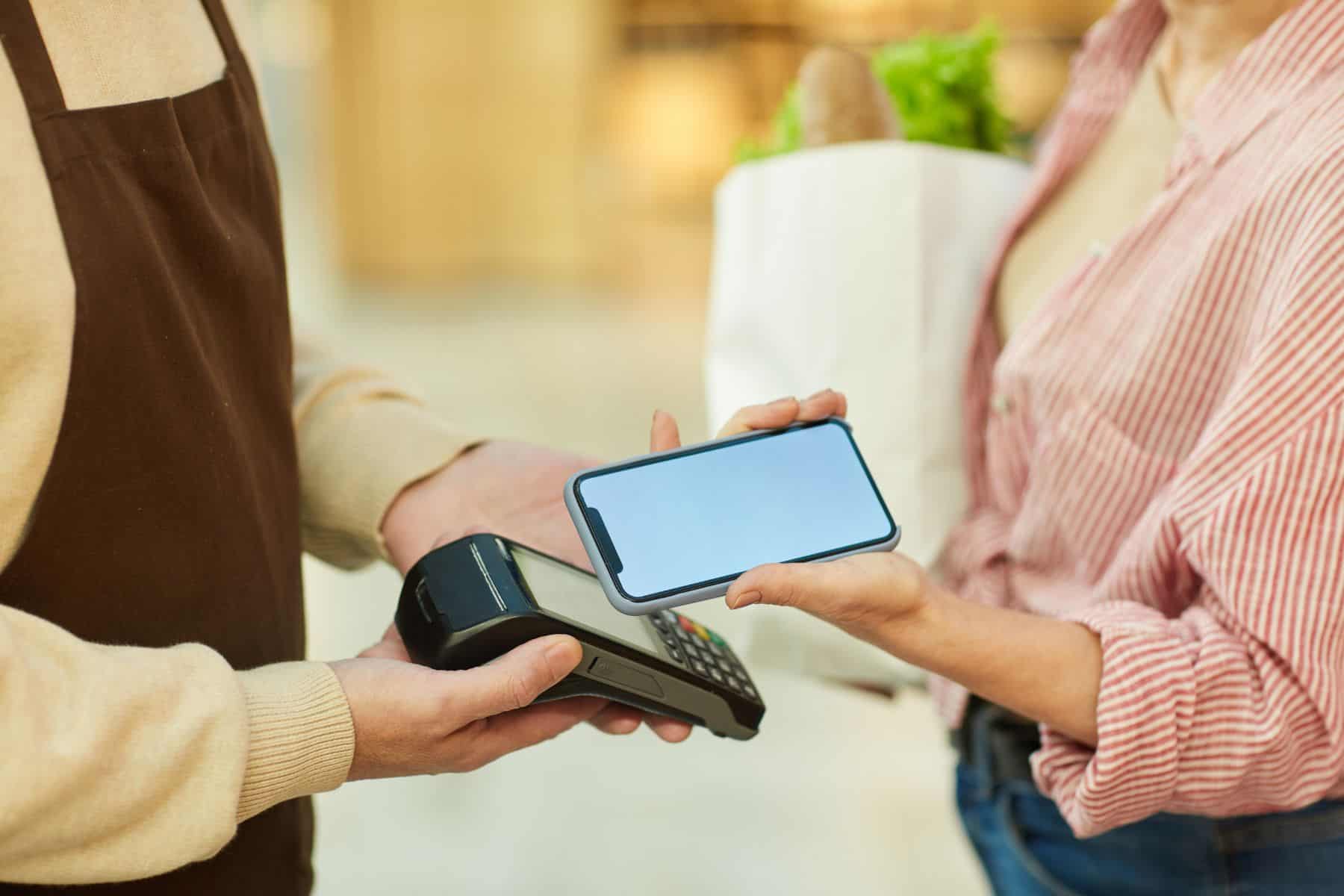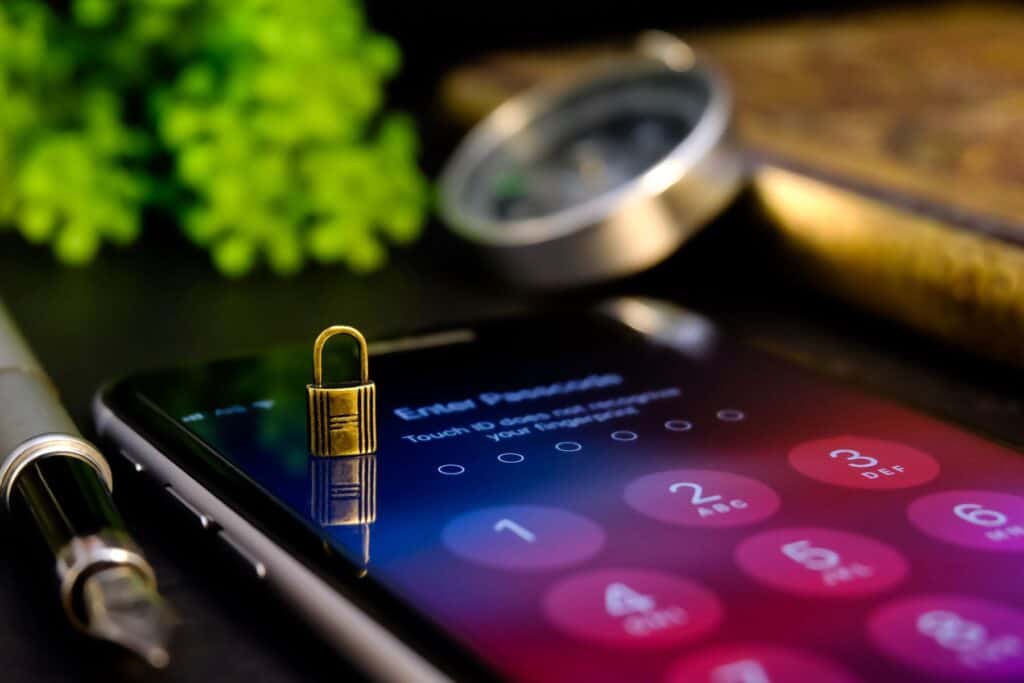Photo by seventyfourimages On Envato Elements
The personal information stored on our iPhones, including contacts, messages, photos, and sensitive data like bank account information and passwords, is extremely valuable. In the event of iPhone data theft, thieves and hackers are constantly seeking ways to gain unauthorized access to these devices and information.
Therefore, it is essential to take the appropriate measures to safeguard your iPhone data from potential theft.
This guide will cover effective methods and strategies for protecting your iPhone and its data from unauthorized access. Whether you’re at your residence or out and about, knowing how to safeguard your iPhone can reassure you and ensure the security of your information.
What are the consequences if your iPhone gets stolen?
Various potential risks may emerge if someone steals your iPhone and it ends up in the possession of unauthorized individuals.
Financial fraud: Unauthorized individuals may exploit sensitive personal information, such as credit card details, bank account information, or passwords, for financial fraud or identity theft.
Invasion of privacy: If private photos, messages, or documents are stored on your iPhone, they could potentially be used for malicious purposes.
Unauthorized account access: The login credentials saved on iCloud Keychains could grant unauthorized access to your online accounts.
Misuse of device: Your iPhone can be misused for making calls, sending messages, or browsing the internet, resulting in unauthorized charges.
Security compromise: If a Lock Screen passcode or Face ID is not utilized, it can compromise the security of your data.
Blackmail or coercion: Personal data on your iPhone could be exploited by thieves for blackmail or to coerce you into fulfilling their demands.
In addition, if the perpetrator is aware of your iPhone’s passcode, they can alter your Apple ID password, eliminate any trusted accounts or associated phone numbers, and, most importantly, disable the Find My feature. As a result, remote deletion of your data and loss of access to your iCloud account becomes impossible. Furthermore, they will have the ability to utilize Apple Pay and send Apple Cash.
Several data threats may arise in the event of your iPhone being stolen. It is crucial to promptly take steps to safeguard your iPhone and data, to reduce the chances of these threats.
What is the initial step to safeguard your iPhone’s data?
In a highly alarming circumstance, swift action is crucial in preventing data breaches. It is advisable to refer to our guide on what steps to take in the event of an iPhone being stolen for effective measures to be implemented.
Moreover, I highly suggest disabling Apple Pay remotely to minimize the chances of data breaches and block potential thieves from gaining access to your data. Once you have reviewed these instructions, it is essential to take the necessary precautions to protect your iPhone in the event of it being stolen.
5 Ways to Safeguard Your iPhone Data from Thieves
It is possible to manipulate standard security protocols, making them vulnerable to tampering. Additionally, the basic features of an iPhone can be utilized by criminals to steal all of your digital information. While it may not always be possible to prevent theft of your device, it is important to take precautionary measures to protect your iPhone and make it more difficult for criminals to access your data.
1. Setting an Alphanumeric Passcode for iPhone Security
The Face ID may not be as foolproof for safeguarding data as one may think. Upon restarting the iPhone, the passcode is required instead of using Face or Touch ID. Furthermore, the iCloud Keychain password manager, approving Apple Pay, and authenticating other actions can all be accessed by anyone using the passcode.
Instead of relying on a simple six-digit passcode, it is recommended to use longer and more complex alphanumeric passcodes that are harder to crack. You can easily establish an alphanumeric passcode on your iPhone by following the steps outlined in this guide. Additionally, you can adjust the Auto-Lock feature to 30 seconds in the Display & Brightness settings to ensure that your phone is not left unlocked for an extended period. In case you are experiencing difficulties with your iPhone’s Auto-Lock, we have a solution for you here.
2. Avoid entering passwords in public places
While it may come across as unsettling, there is a possibility that the thief is tracking your movements. If they manage to figure out your password, they could potentially steal your device.
According to law enforcement, criminals use clever methods to uncover individuals’ passcodes, such as taking photos of them from afar. As a precaution, it is advisable to cover your screen when in public and utilize Face ID or Touch ID to prevent passcode theft while on the go.
3. Enabling Passwords for iPhone Apps
One can apply various passcodes on applications such as Venmo, PayPal, etc., or secure apps with confidential information using app lock. It is not recommended to use the same password for LockScreen on other accounts. Additionally, it is advised to set a screen time passcode and select “Don’t Allow” in the Account Changes section.
4. Avoid depending solely on iCloud Keychain
According to the information, if the thief is aware of your passcode, they will have the ability to retrieve all of your stored passwords from iCloud Keychain. This can result in fraudulent access to bank accounts via stolen iPhones. Therefore, it is imperative to modify all passwords that contain sensitive information.
To ensure maximum security, opt for password manager applications that offer biometric authentication and prompt for a master password in case the biometric authentication fails.
5. Avoid storing sensitive information in photo form
In case you require scanning important papers containing confidential details such as passports, licenses, cards, or SSNs, remember to promptly delete them from Photos after use. It is advisable to store them in the secure file storage of a password manager to effectively safeguard your iPhone data from potential theft.
Ensure your safety and security at all times!
It is crucial to safeguard your iPhone data from potential thieves as it contains a significant amount of private and sensitive data. In addition to the aforementioned suggestions, refrain from using public Wi-Fi and enable two-factor authentication to protect your iPhone from cyber intruders. Remain vigilant and prioritize the security of your iPhone and its data.



